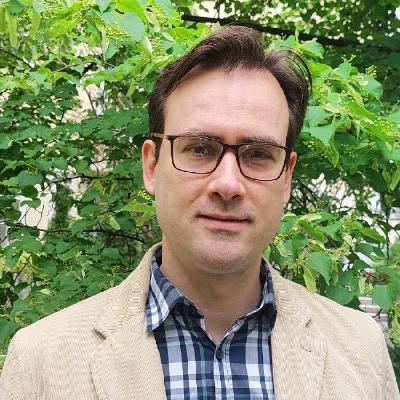You are here :
- EUTOPIA website
- Home
- Research & Innovation
- Fellowship
- SIF - Post-Doctoral Fellowships
SIF 3rd Cohort Fellows - Marco Vianna Franco, CY Cergy Paris University

Curriculum Vitae
- Education
2010: M.Eng. in Aeronautical and Mechanical Engineering, Aeronautics Institute of Technology (Brazil)
2006: B.Eng. in Electrical Engineering, Federal University of Minas Gerais (Brazil)
- Experience
2020–2023: Postdoctoral Fellow, Konrad Lorenz Institute for Evolution and Cognition Research (Austria). Book project “A History of Ecological Economic Thought.”
2015–2020: Researcher and Lecturer in Applied Sciences and Public Policies, João Pinheiro Foundation (Brazil). Research in regional accounts, input-output analysis, and policies for sustainable development.
- Publications/Research Achievements
Research Project:
Energetics in Central European Economic Thought
As a reaction to environmental peril at global scale, economists have grappled with the challenge of devising a more sustainable economic system. In the same way, historians of economics have a role to play in redeeming earlier attempts that could be used in the same way. In this context, the consolidation of energetics and its implications to economic issues during the 19th century stands out as a promising object of historiographical research. Within German-speaking scholarship, there is a long intellectual tradition bridging the fields of thermodynamics and political economy in a quest to understand how biophysical laws and constraints are intertwined with modes of social organization and provisioning processes.
Therefore, the objective of the proposed research is to assess the assimilation of the rising field of energetics in currents of economic thinking in Central Europe (1880s-1930s). It focuses on key questions such as economic value, resource accounting, and social reform in
- (i) the social mechanics of Austrian professor Eduard Sacher;
- (ii) the social energetics of scholars associated with Wilhelm Ostwald, such as Rudolf Goldscheid, Oskar Nagel, and Johann Žmavc; and
- (iii) the so-called Other Austrian Economics of Otto Neurath, Josef Popper-Lynkeus and Karl Ballod-Atlanticus. In methodological terms, the project draws on models, concepts and conceptual transfers based on published and unpublished primary sources as well as archival material. Offering a thorough theoretical framework to reconcile the natural and social sciences, these lesser-known thinkers and their ideas merit renewed attention, not least given their potential to inform contemporary debates in fields such as ecological economics.


